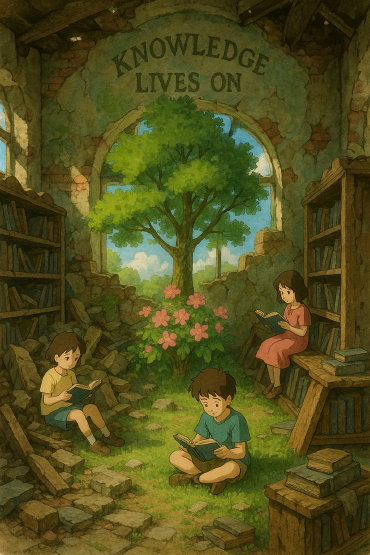A society that lowers the threshold of knowledge, a path we must create together.
Accessibility Issues of Society and Knowledge
Today, our society is facing a fundamental issue related to the accessibility of knowledge. It is not simply that the prices of books have risen. This signals a need to reevaluate the right of the entire society to access knowledge and culture, and it shows that the gap in values and opportunities is widening. This phenomenon significantly impacts the future development of society, intertwined with the social role and cultural meaning of knowledge, as well as structural economic inequalities.
Reasons for the Increase in Book Prices
The rise in book prices stems from a combination of factors such as increases in paper costs and labor expenses, changes in distribution structures, and a contraction of the publishing market. However, the outcome is clear. The threshold to access knowledge is becoming increasingly higher. In the past, books were easily accessible to anyone who crossed the threshold of a bookstore, but now they can feel like a luxury asset that one hesitates to acquire due to economic burdens. As a result, access to knowledge and culture is becoming a privilege for certain social classes, which in turn creates a vicious cycle that solidifies social opportunity gaps.
Fixed Book Price System and Digital Content
In addition, the fixed book price system and the distribution of digital content have another duality. The fixed book price system is a framework designed to protect the publishing ecosystem, but excessive price stabilization can actually narrow the information access opportunities for low-income individuals and the younger generation. Digital content enables fast and convenient knowledge consumption, but disparities in access to digital infrastructure or the ability to utilize technology create another 'digital divide.' This, in turn, produces a new form of 'knowledge inequality,' further reinforcing the exclusionary structures in society as a whole.
The Perilous Position of Reading
As a result, the status of books and education, which were once ladders for social mobility, is becoming precarious. Now, only a few can enjoy deep reading and contemplation, and this is not just an individual issue but a societal one. Knowledge is a key tool that allows humans to reflect on themselves, understand others, and view the world correctly. However, if this knowledge is increasingly being closed off in the name of cost, what kind of future are we heading towards?
Recovering Depth of Thought
Moreover, modern society has become accustomed to rapid information and stimulating content, gradually losing the ability for deep thought. Short videos, breaking news, and the immediate feedback of social media have given us speed but taken away our time for contemplation. In times like these, we need to regain the value of 'deep reading' and 'slow thinking.' The ability to reflect on oneself, understand the world, and imagine the lives of others while savoring a book is more precious than any information.
The True Value of Knowledge
In this context, the true value that knowledge and books allow us is not merely the acquisition of information, but 'self-reflection' and 'social connection.' Reading may seem like a solitary act, but within it lies a profound bond with others, communication with society, and, further, a connection to the wisdom of humanity.
Efforts are needed for knowledge accessibility
Therefore, what we need now is clear. We must lower the threshold to knowledge once again. The government must expand the development of public libraries and increase investment in digital infrastructure, and through sustainable reading education, must open the doors to knowledge for everyone. Publishers should develop content that considers a broader readership based on a sense of social responsibility, and civil society and reading communities should reach out in solidarity so that diverse social classes can walk the path of learning together.
Social Responsibility of Learning
When these efforts come together, we can achieve true 'knowledge democracy'. When knowledge is not the exclusive property of a specific group, and everyone can learn freely and equally, that society can grow maturely based on a broader and deeper understanding. This is the source of creativity, the root of innovation, and above all, the foundation for a humane society.
Learning is a collective responsibility
Finally, we must not forget that learning is never just an individual matter. It is the shared responsibility of society as a whole and the most certain path towards a better future. The challenges of rising book prices and the digital divide are undoubtedly difficult challenges today. However, when we face these challenges head-on and everyone moves toward equality in learning together, we will ultimately be able to open new doors of knowledge and take another step toward a society for all.
The Importance of Reading Books
The beginning of that journey always starts with 'reading, thinking, and sharing.' Now, it's time to open the book again and reflect together. It is to love the world more deeply.

Post a Comment